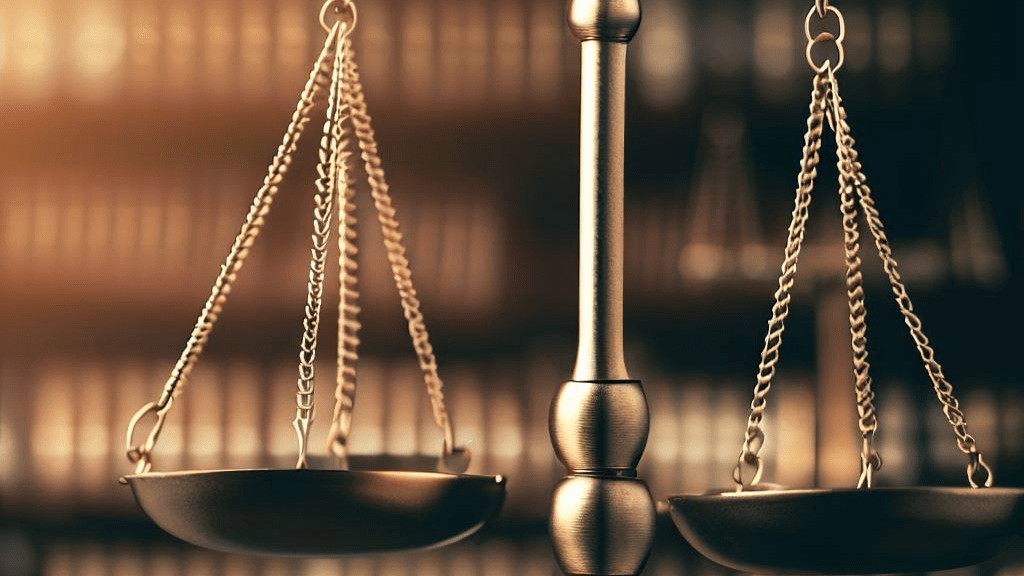
Sam Bankman-Fried, the disgraced founder of FTX, is currently embroiled in a high-stakes legal battle with US prosecutors, who have requested the revocation of his $250 million bond. The prosecutors allege that Bankman-Fried’s contact with a reporter and the subsequent publication of diary entries written by a former colleague, Caroline Ellison, were attempts to intimidate her as a potential witness in his trial and influence potential jurors. In response, Bankman-Fried’s lawyer argues that detaining him for speaking with a reporter raises serious First Amendment issues. The case has sparked intense debates about the delicate balance between free speech rights and the legal proceedings of a high-profile trial.
Background of the Legal Battle
The legal battle surrounding Sam Bankman-Fried stems from the collapse of FTX, the once-thriving cryptocurrency exchange, in November of the previous year. Bankman-Fried, who was under house arrest at his parents’ home in California, faces charges of conspiracy and fraud related to the alleged misuse of billions of dollars of customers’ funds before the FTX crypto empire collapsed. The case has drawn significant attention due to Bankman-Fried’s prominent role in the cryptocurrency industry and the massive financial implications of the alleged misconduct.
Prosecutors’ Allegations and Bankman-Fried’s Response
The heart of the prosecutors’ request for bond revocation centers on a New York Times article that quoted diary entries written by Caroline Ellison, the former CEO of Alameda Research, who has pleaded guilty to fraud and is now cooperating with prosecutors. The prosecutors allege that Bankman-Fried provided the diary entries to the New York Times and spoke with the reporter writing the article, with the intention of intimidating Ellison and influencing potential jurors.
In response to the allegations, Bankman-Fried’s lawyer, Mark Cohen, argues that detaining his client for speaking with a reporter raises serious First Amendment issues. Cohen contends that Bankman-Fried’s contact with the reporter was not an attempt to intimidate Ellison or taint the jury pool. Instead, it was a legitimate exercise of his right to make fair comments on an article already in progress, for which the reporter had other sources.
The First Amendment and Criminal Defendants’ Rights
The First Amendment of the United States Constitution protects the freedom of speech, including the right to speak to the press. Criminal defendants have historically exercised their right to talk to the press about their case to shape public perception and protect their reputation. However, there are limitations to this right when it comes to influencing ongoing legal proceedings. Courts have grappled with striking a balance between protecting the integrity of the judicial process and upholding free speech rights.
The delicate balance becomes particularly pronounced in high-profile cases, where media attention can significantly impact public perception and the potential for a fair trial. Courts have issued guidelines on media interactions for defendants, seeking to maintain a fair and impartial jury pool while preserving free speech rights.
Importance of Preserving Free Speech Rights in Legal Proceedings
Preserving free speech rights is essential to uphold the principles of democracy and ensure transparency in the legal process. Criminal defendants have the right to express themselves, share their side of the story, and respond to media coverage about their cases. This right helps protect defendants from potential public vilification before the conclusion of a trial.
At the same time, courts must be vigilant in preventing any attempts to intimidate witnesses, tamper with evidence, or otherwise obstruct justice. The judicial system relies on a fair and impartial trial, and any actions that could potentially influence jurors or witnesses can undermine the integrity of the proceedings.
The Role of the Court in Addressing First Amendment Issues
In Sam Bankman-Fried’s case, the court faces the challenging task of addressing the First Amendment issues raised by his defense team. The court must carefully examine the evidence and determine whether Bankman-Fried’s interactions with the press were legitimate exercises of free speech or if they crossed the line into attempts to intimidate witnesses or influence the jury pool.
The court’s decision will set an important precedent for the delicate balance between free speech rights and the conduct of high-profile trials. The case will likely have broader implications for how courts handle media interactions by criminal defendants in the future.
Conclusion
The legal battle between Sam Bankman-Fried and US prosecutors has drawn attention to the delicate balance between free speech rights and the legal proceedings of a high-profile trial. Bankman-Fried’s contact with a reporter and the subsequent publication of diary entries written by a cooperating witness have raised questions about potential attempts to intimidate and influence the proceedings.
The case highlights the importance of preserving free speech rights for criminal defendants while upholding the integrity of the judicial process. As the court continues to address the First Amendment issues raised by Bankman-Fried’s defense team, the outcome will likely have broader implications for how courts handle media interactions by criminal defendants in the future. The delicate balance between these fundamental rights will continue to be a topic of significant interest and debate as the case unfolds.
Get the latest Crypto & Blockchain News in your inbox.